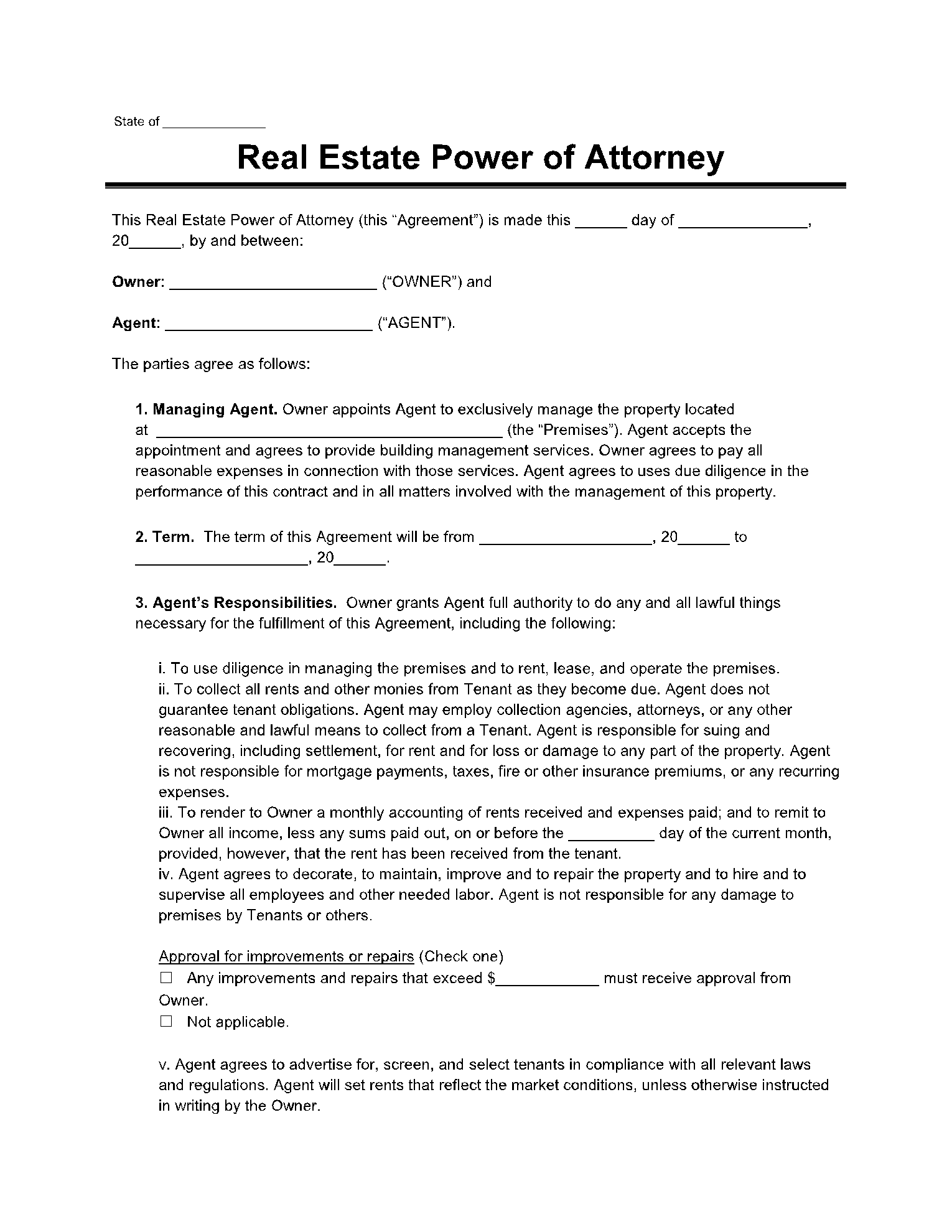Ohio Power of Attorney Forms grants an attorney-in-fact legal authority to make financial and medical decisions on behalf of the individual who signs the document (principal). Depending on the type of power of attorney document that is enforced, the powers can be general in nature or specific.
Suppose a principal cannot make decisions about themselves. In that case, they will create a form that allows a representative to do so on their behalf due to a disability or other incapacitation. The power of attorney form in Ohio, in most cases, becomes effective as soon as the principal is unable to make competent decisions.
Although it might appear that an "attorney-in-fact" should be a lawyer, the principal's spouse, a relative, or a personal friend or associate is more often designated as an approved representative to an Ohio power of attorney form.
What Is the Purpose of an Ohio Power of Attorney?
Accidents occur, and diseases are unavoidable. A person might use an Ohio power of attorney for a variety of reasons. An individual who is elderly, mentally ill, or in poor health may need assistance with their affairs. Older people who may have Alzheimer's disease or dementia cannot control their finances, such as paying bills or purchasing or selling land.
A durable power of attorney form in Ohio isn't solely for the elderly or disabled. Ohio power of attorney form is also recommended for those who are in excellent health. One of the many reasons that anyone may like their Agent to manage their affairs is business reasons. If the grantor owns a company, the Agent must have the authority to run and execute essential business tasks like paying workers and vendors.
However, as in any printable durable power of attorney form in Ohio, you must expressly state which powers your Agent has and which he or she does not have. If you don't want your Agent to have the authority to fire or recruit staff, make it clear in your contract.
Nobody knows what will happen tomorrow, but being well informed in the event of an accident is always a good idea. Regardless of the circumstance, each person's power of attorney requirements will differ. As a result, there are several different kinds of Ohio power of attorney.
What Is the Ohio Power of Attorney Requirements?
An Ohio power of attorney may be established by downloading and filling out a power of attorney form. In Ohio, powers of attorney are governed by Chapter 1337 of the Ohio Revised Code. This portion of the Ohio Revised Code applies to all forms available.
Ohio power of attorney form Specification:
A power of attorney must meet the following conditions to be effective in the state of Ohio:
- The principal's name and contact details must be included in a power of attorney form in Ohio.
- Name and contact details for the Agent
- The date on which the contract is signed
- When the rights are given and when they expire
- A notary public's signature
- An Ohio power of attorney must be signed in the principal’s presence or by a person authorized to sign the document in the principal's name.
If an Ohio power of attorney includes a real estate transaction, it must be registered in the proper county recorder's office, according to 1337.04. An Ohio power of attorney may be revoked at any time as long as the principal retains competence.
Final Thoughts
Understanding Ohio's power of attorney provisions is helpful in many cases. Establishing a power of attorney in Ohio can be beneficial when you can't be present to sign legal documents. It might also be a matter of necessity to entrust your finances or medical care decisions to someone you trust if you become incapacitated.
